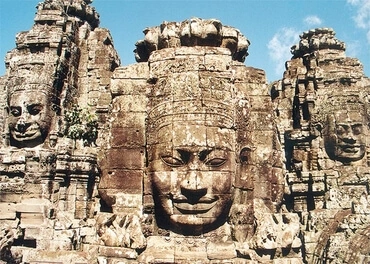1
And daughters of Zelophehad son of Hepher, son of Gilead, son of Machir, son of Manasseh, of the families of Manasseh son of Joseph, draw near -- and these [are] the names of his daughters, Mahlah, Noah, and Hoglah, and Milcah, and Tirzah --
2
and stand before Moses, and before Eleazar the priest, and before the princes, and all the company, at the opening of the tent of meeting, saying:
3
`Our father died in the wilderness, and he -- he was not in the midst of the company who were met together against Jehovah in the company of Korah, but for his own sin he died, and had no sons;
4
why is the name of our father withdrawn from the midst of his family because he hath no son? give to us a possession in the midst of the brethren of our father;'
5
and Moses bringeth near their cause before Jehovah.
6
And Jehovah speaketh unto Moses, saying,
7
`Rightly are the daughters of Zelophehad speaking; thou dost certainly give to them a possession of an inheritance in the midst of their father's brethren, and hast caused to pass over the inheritance of their father to them.
8
`And unto the sons of Israel thou dost speak, saying, When a man dieth, and hath no son, then ye have caused his inheritance to pass over to his daughter;
9
and if he have no daughter, then ye have given his inheritance to his brethren;
10
and if he have no brethren, then ye have given his inheritance to his father's brethren;
11
and if his father have no brethren, then ye have given his inheritance to his relation who is near unto him of his family, and he hath possessed it;' and it hath been to the sons of Israel for a statute of judgment, as Jehovah hath commanded Moses.
12
And Jehovah saith unto Moses, `Go up unto this mount Abarim, and see the land which I have given to the sons of Israel;
13
and thou hast seen it, and thou hast been gathered unto thy people, also thou, as Aaron thy brother hath been gathered,
14
because ye provoked My mouth in the wilderness of Zin, in the strife of the company -- to sanctify Me at the waters before their eyes;' they [are] waters of Meribah, in Kadesh, in the wilderness of Zin.
15
And Moses speaketh unto Jehovah, saying,
16
`Jehovah -- God of the spirits of all flesh -- appoint a man over the company,
17
who goeth out before them, and who cometh in before them, and who taketh them out, and who bringeth them in, and the company of Jehovah is not as sheep which have no shepherd.'
18
And Jehovah saith unto Moses, `Take to thee Joshua son of Nun, a man in whom [is] the Spirit, and thou hast laid thine hand upon him,
19
and hast caused him to stand before Eleazar the priest, and before all the company, and hast charged him before their eyes,
20
and hast put of thine honour upon him, so that all the company of the sons of Israel do hearken.
21
`And before Eleazar the priest he standeth, and he hath asked for him by the judgment of the Lights before Jehovah; at His word they go out, and at His word they come in; he, and all the sons of Israel with him, even all the company.'
22
And Moses doth as Jehovah hath commanded him, and taketh Joshua, and causeth him to stand before Eleazar the priest, and before all the company,
23
and layeth his hands upon him, and chargeth him, as Jehovah hath spoken by the hand of Moses.








